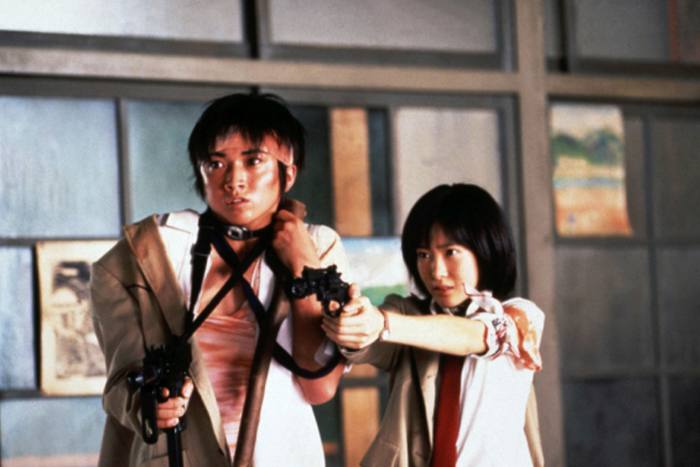Battle royale games keep players fighting to the death
It’s Makoto Naegi’s first day at the elite Hope’s Peak Academy and he’s a little nervous. As players embark on this first game of the Danganronpa series, just reissued alongside its sequels for Nintendo Switch, they learn that Hope’s Peak is not what it seems. The eager students are soon imprisoned in a sadistic game conducted by a nefarious teddy bear. Their only chance of escape is to kill another student and successfully frame a classmate for the crime. The story explores a chilling psychological question: what circumstances can push a good person to murder?
If this set-up sounds familiar, it should. Danganronpa is an example of a “battle royale”, a genre in which a group of people are placed in a closed environment and forced to compete to the death with only a sole survivor allowed to escape. Over the past decade, this conceit has become one of the most popular and lucrative trends in culture, powering the meteoric success of screen hits such as The Hunger Games and Squid Game alongside video games such as Fortnite and Call of Duty: Warzone.
The 2000 Japanese film Battle Royale gave the genre its name. In this modern horror classic, a group of 42 high-schoolers are placed on an island and told they must fight until only one remains. The movie proved controversial on release for its extreme brutality, yet beneath the viscera was a thoughtful fable that explored how trust becomes a scarce yet vital resource when your life is on the line and everyone has a motive to kill you.
The film inspired imitators in manga and anime, and the idea went mainstream with The Hunger Games, in which teens compete in a deathmatch. This year, Netflix’s Squid Game, the platform’s most popular series to date, gave the genre an interesting twist by creating a death game which debt-ravaged contestants take part in to win money. The battle royale framework functions as a flexible vehicle for metaphor, whether it’s the critique of capitalism in Squid Game or the literal life-and-death struggle of high school drama in Danganronpa. All these stories interrogate meritocracy, considering how young people are forced to compete in a world where the decks are stacked against them and there are never enough rewards to go around.
In the world of gaming, the first titles to imitate Battle Royale, such as the visual novels Danganronpa and Zero Escape, explored similar themes, but the big successes today are shooters with no such intellectual pretensions. Here a group of players are dropped from a plane across a large map and must scavenge weapons and fight until only one remains. These have become the dominant form in online gaming.


The first examples were mods for Minecraft and zombie survival game DayZ, before the latter was rebuilt as a standalone game, 2017’s PUBG: Battlegrounds, which became the genre’s first breakout success. Shortly afterwards, Epic Games retooled its little-played survival game Fortnite to include a battle royale mode and it became a global phenomenon. While many battles royale sprung up in their wake, few attained the same enduring popularity. Those that did offered twists on the formula: Fortnite allows players to build protective structures; 2019’s Apex Legends focuses on teamwork; and 2020’s Call of Duty: Warzone has the “gulag”, where slain players can re-enter the fray if they triumph in a one-on-one deathmatch.
If these enormously popular shooters do not engage with the themes that make battles royale so attractive in TV and film, why do players flock to them? The reason is a narrative tension that is inherent to the concept. Competition starts slowly as players look for weapons and often avoid combat while they are still vulnerable. Participants get picked off and the stakes rise as the field of play shrinks, forcing them into a tight space where conflict becomes inevitable. The number of variables, from the huge quantity of competitors to the randomly dispersed equipment, make for unpredictable gameplay.
The genre has also proved versatile. A number of non-violent games have offered eccentric takes on the battle royale, ranging from the candy-coloured obstacle course Fall Guys to Tetris 99, where 99 players stack blocks in a last-man-standing competition. Today there is truly a battle royale for every player, and last week I finally found one for me — new release Babble Royale, a spin on Scrabble in which players parachute letter tiles on to a board and compete to be the last speller standing.